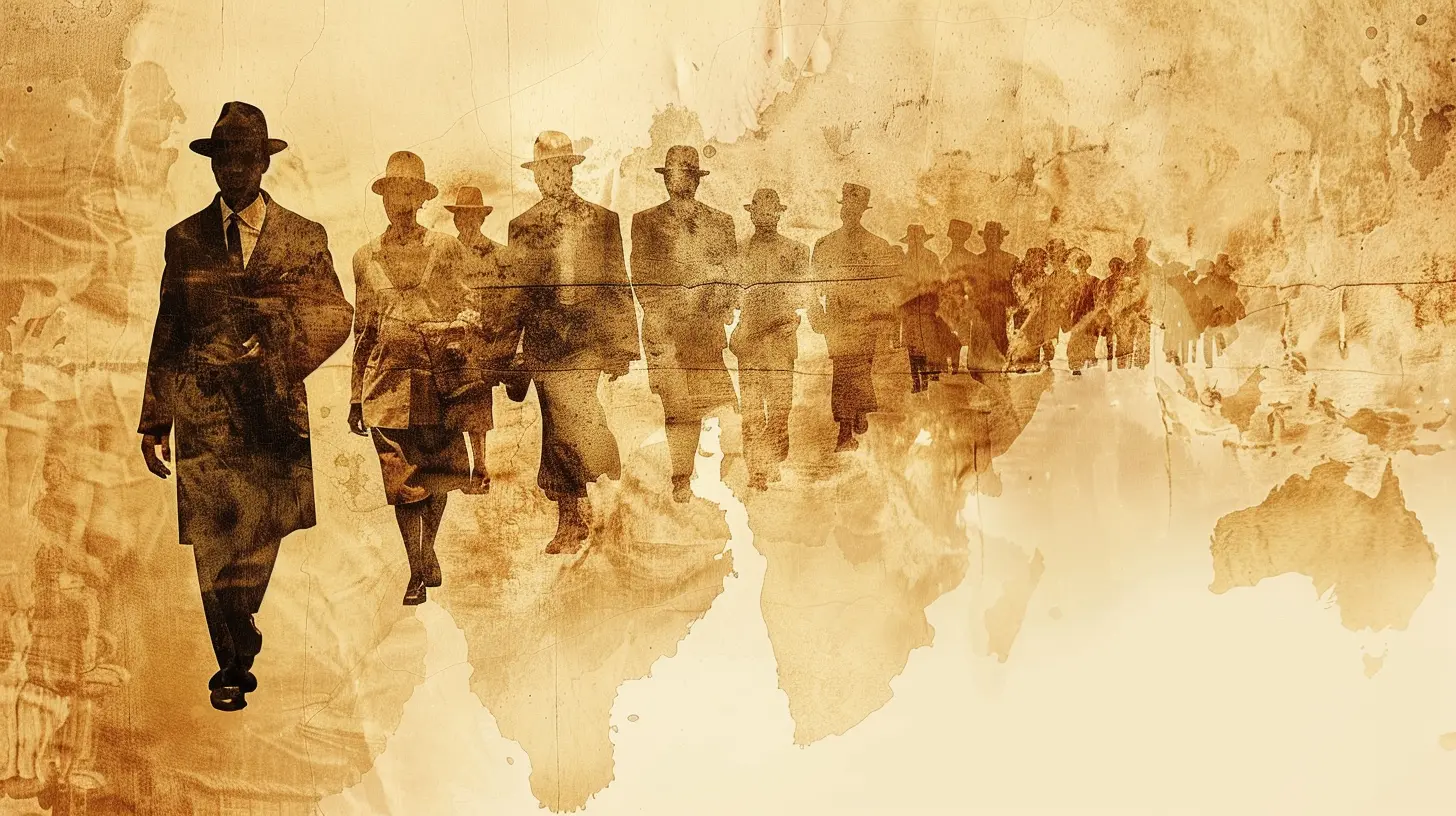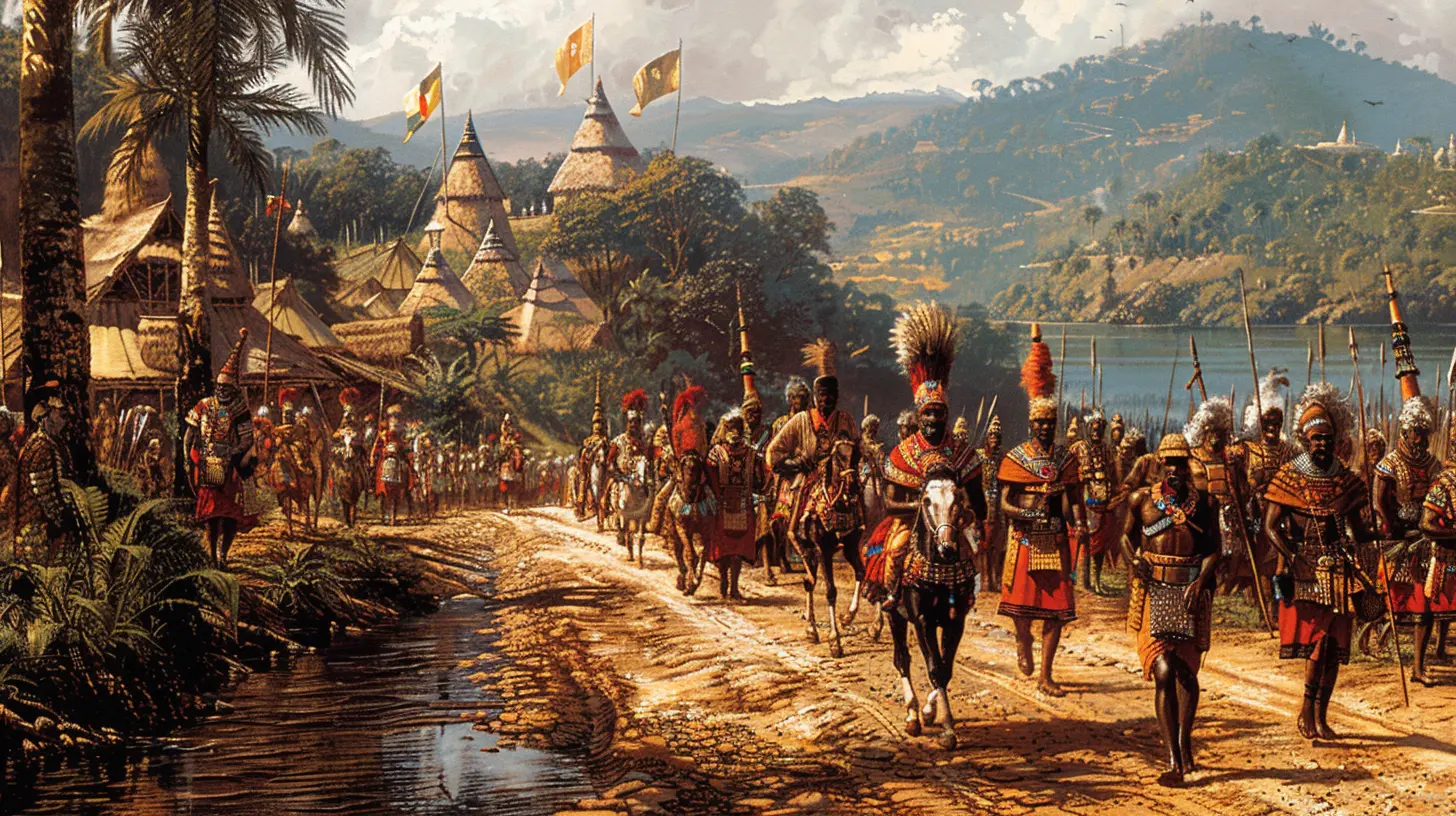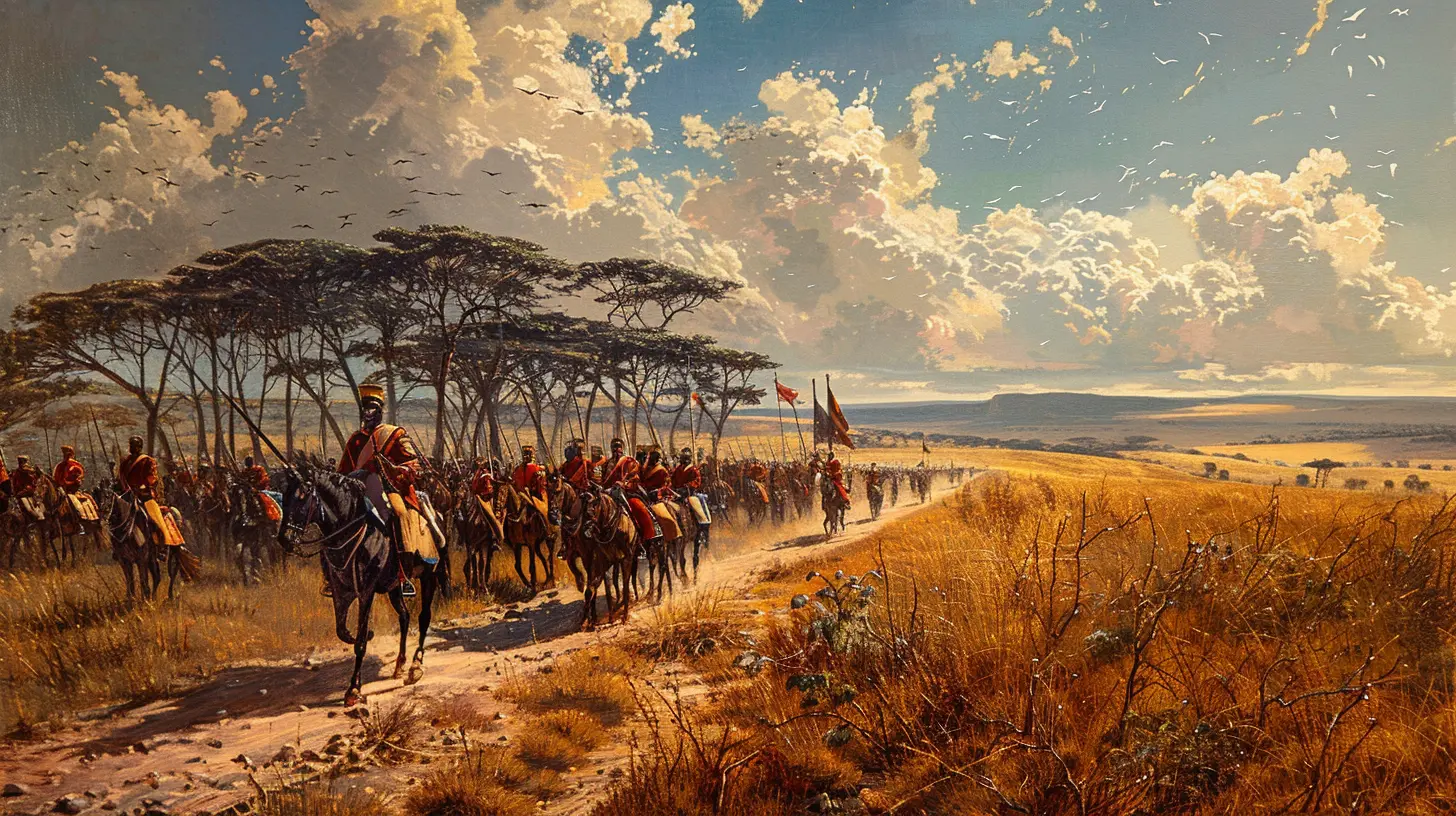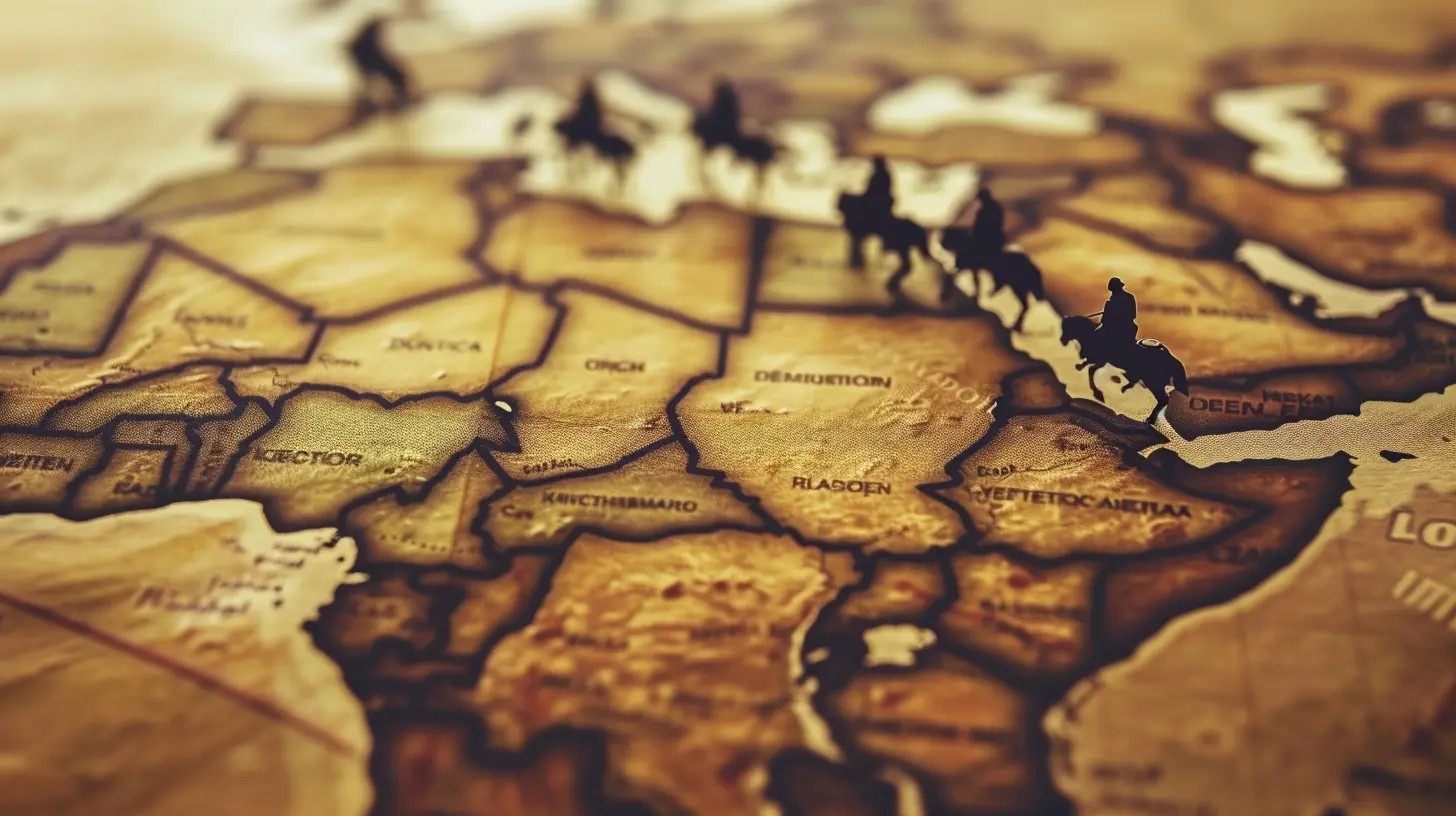The Road to Independence: Decolonization in Africa
25 May 2025
Ah, decolonization. That glorious moment when the European powers finally decided, "You know what? Maybe ruling over millions of people without their consent isn't the best look for us." Of course, they didn't exactly wake up one day, slap their foreheads, and apologize for their imperial ways. No, the road to independence in Africa was long, messy, and—let’s be honest—quite dramatic.
From peaceful negotiations to straight-up revolutions, African nations fought tooth and nail to reclaim what was rightfully theirs. But why did it take so long? And what did independence actually mean for these newly freed nations? Buckle up, because we’re about to take a bumpy ride through history.

The Colonial Mess: How Did We Get Here?
Let’s rewind to the late 19th century—a time when European powers were obsessed with slicing up Africa like it was a freshly baked pie. Ever heard of the Berlin Conference of 1884-1885? Yeah, that was when a bunch of European leaders, none of whom were African, decided to divide the continent among themselves. Because, you know, why bother asking the actual people who lived there?This period, known as the Scramble for Africa, was basically a land-grabbing frenzy. The British, French, Belgians, Portuguese, Germans, and Italians all wanted a piece of the African pie. The result? Borders drawn with zero regard for ethnic, cultural, or linguistic groups, leading to conflicts that persist to this day. But hey, details, right?

The Winds of Change: Why Did Decolonization Happen?
Fast forward to the mid-20th century, and things started spiraling out of colonial hands. A few key reasons made independence inevitable:- World War II Changed Everything: The war left European economies shattered. Colonizing Africa suddenly seemed like an expensive hobby they could no longer afford.
- The Rise of Nationalism: Africans weren't exactly thrilled about foreign rule (shocking, right?). Nationalist movements sprang up across the continent, demanding independence.
- International Pressure: The United Nations and the United States were giving European powers some serious side-eye, encouraging decolonization.
- Cold War Politics: The US and USSR were busy playing their global game of chess. Supporting independence movements was a great way to gain influence in Africa.
With all these forces at play, colonial rulers had two choices—cling to power until things got nasty or leave with as much dignity as possible. Spoiler alert: Some left peacefully, others… not so much.

The Independence Roll Call: Who Went First?
Africa didn’t just wake up one morning free from colonial rule; independence happened in waves. Some countries negotiated their way out, while others had to fight tooth and nail.The Peaceful Departures
Some European powers saw the writing on the wall and decided to pack up with minimal drama.- Ghana (1957): The OG of African independence, Ghana was the first sub-Saharan country to break free from British rule. Thanks to Kwame Nkrumah’s leadership and a solid nationalist movement, they secured their independence without a war.
- Nigeria (1960): The Brits, perhaps exhausted from handling independence movements, allowed Nigeria a relatively smooth transition. Smooth, that is, until post-independence political chaos took over.
- Tanzania (1961): Julius Nyerere led the country through a peaceful transition from British rule. Turns out, having a leader who knows how to negotiate helps.
The Not-So-Peaceful Exits
Of course, not all colonial powers were thrilled about leaving. Some held onto their colonies like a toddler clutching their favorite toy.- Algeria (1962): If you think France let Algeria go without a fight, think again. The Algerian War of Independence (1954-1962) was brutal—over a million Algerians lost their lives. France eventually realized it wasn’t worth it and bowed out.
- Kenya (1963): The Mau Mau Uprising made the British very uncomfortable. After years of guerrilla warfare, they finally granted Kenya independence—but not before some truly horrific acts of violence against Kenyan rebels.
- Angola & Mozambique (1975): Portugal was that one stubborn colonizer who refused to leave until war made staying unbearable. The result? Bloody independence struggles that left both countries in ruins.

Independence Is Great… Right?
Oh, if only independence magically solved all of Africa’s problems. The harsh reality? Gaining independence was just the beginning of a whole new set of challenges.The Legacy of Colonial Rule
Europeans didn’t exactly leave Africa in great shape. They had plundered resources, manipulated ethnic groups, and created weak political structures. So, when they left, they handed over the keys to countries that had little experience in governance. What could possibly go wrong?Political Instability & Coups Galore
Many African leaders inherited systems that were not built for stability. Democracy? That was more of a suggestion than a fully functioning system. The result? A series of coups, corrupt governments, and, in some cases, outright dictatorships.- The Democratic Republic of Congo’s first Prime Minister, Patrice Lumumba, was assassinated in 1961, ushering in a long era of chaos.
- Uganda had Idi Amin, one of history’s most notorious dictators.
- Zimbabwe traded colonial rule for Robert Mugabe’s long and, let’s just say, problematic reign.
Economic Struggles
The Europeans took all the wealth-generating industries with them. What was left? Economies reliant on exporting raw materials, which meant African nations were at the mercy of global markets. No infrastructure, massive debts, and economies built for exploitation rather than self-sufficiency—it was a recipe for disaster.Neocolonialism: The New Boss, Same as the Old Boss?
Just because European powers physically left Africa doesn’t mean they stopped influencing the continent. Neocolonialism (a fancy word for indirect control) became the new order. Instead of ruling directly, Western nations and corporations exerted control through economic policies, trade agreements, and foreign aid that came with a long list of strings attached.So, Was It Worth It?
Despite all the struggles, one thing remains clear—independence was necessary. Colonial rule was never about helping Africa; it was about exploiting it. Yes, independence came with a truckload of challenges, and yes, many African nations are still dealing with the leftovers of colonial damage. But at least the future is in African hands.The road to independence was long, painful, and, in many cases, bloody. But the fight was worth it. Because no matter how messy things got, one truth stands tall: Africa belongs to Africans.
all images in this post were generated using AI tools
Category:
History LessonsAuthor:

Olivia Chapman
Discussion
rate this article
3 comments
Alyssa Cruz
Decolonization: Africa's epic quest for freedom and flair!
June 9, 2025 at 10:45 AM

Olivia Chapman
Thank you for your insightful comment! Decolonization truly represents a pivotal chapter in Africa's history, showcasing the resilience and vibrant cultures that have emerged in the quest for independence.
Barrett Montgomery
What a fascinating journey through Africa's decolonization! The resilience and determination of nations striving for independence are truly inspiring. It's a powerful reminder of the importance of self-determination and the ongoing quest for identity in our ever-changing world. Thank you for sharing!
May 29, 2025 at 11:07 AM

Olivia Chapman
Thank you for your thoughtful comment! I'm glad you found the journey of Africa's decolonization inspiring. It truly highlights the strength of nations in their pursuit of self-determination and identity.
Ivy Hughes
Thank you for highlighting the complexities of Africa's journey to independence. It's essential to honor the resilience of countless individuals who fought for their freedom and identity.
May 28, 2025 at 4:34 AM

Olivia Chapman
Thank you for your thoughtful comment! Indeed, honoring the resilience of those who fought for freedom is crucial in understanding Africa's journey to independence.



